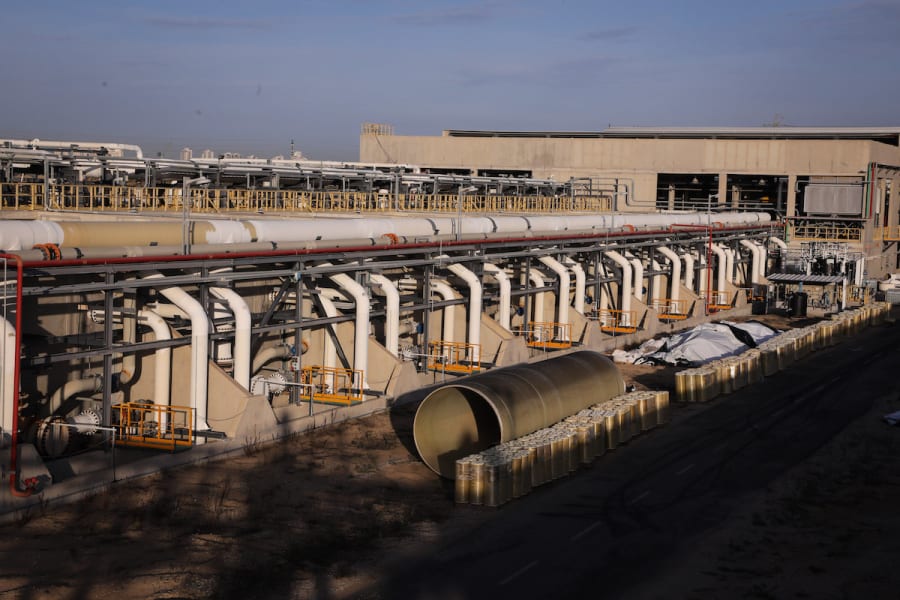Israel’s number of desalination plants to grow in coming years
Israel’s innovation in water desalination has made it a prime exporter of technology in the field

Israel will add two water-desalination plants to its current five in the coming years, to meet the country’s projected future requirements for drinkable water.
With about 60% of its tiny territory comprised of the dry Negev Desert and a population of 10 million people to provide water for – numbers which grow by 2% each year – Israel does not have enough natural freshwater to meet the need of its population.
For years, Israel has had to produce its own water by establishing desalination plants that gather water from the Mediterranean Sea and convert it into potable water.
Converting seawater into drinking water requires the process of reverse osmosis, whereby seawater is pumped into tubes at a very high pressure and filtered until it is completely clean. Before redistribution as drinking water, certain minerals, such as calcium, are added to it.
Roughly 75% of Israel’s potable water comes directly from the Mediterranean Sea, with Israel having the highest per capita usage of desalinated water in the world.
One of the plants that produces drinkable water for Israelis is in Hadera, a city in northern Israel. According to David Muhlgay, head of the IDE Hadera Desalination Plant and CEO of Omis Water Ltd., one pipe alone can desalinate and deliver around 137 million cubic meters of drinkable water to the Israeli public.
“We can see now, all over the world, that water is becoming scarce. Ninety-seven percent of the water on earth is in the sea. So we have to learn how to [desalinate] efficiently,” he said.
“In 2018, the Israeli government made a resolution that, by 2030, it would desalinate 1.1 billion cubic meters of seawater, and that would anticipate all future needs, including the growth of the population,” Muhlgay said.
It is estimated that around 60% of the world’s population could face severe water shortages in the next 30 years.
Israel’s innovation in water desalination has made it a prime exporter of water-desalination technology to other arid countries or those that suffer from a lack of natural freshwater resources. These include countries in Africa and the Middle East.
Consisting largely of barren deserts, the Middle East stands out as the world’s most water-stressed region. At the same time, the region has a young and rapidly growing population, which adds extra pressure on the region’s already scarce water resources.
In November, Jordan, Israel and the United Arab Emirates signed a deal that will see Israel export up to 200 million cubic meters of desalinated water to Jordan in exchange for “green” electricity from a Jordanian solar farm to be built by a UAE corporation.
In January 2021, Israel’s national water company, Mekorot, signed a preliminary agreement with Bahrain to supply advanced desalination technology to the tiny Arab kingdom in the Persian Gulf.
For Bahrain and the UAE, which mainly consist of desert, desalination technology is critical for their nations’ future viability.
Bahrain currently struggles with decreasing water quality because of pollution and salt accumulation. Consequently, many local water wells are no longer suitable for drinking water.
The tiny Arab state relies largely on importing bottled drinking water, which is costly. By acquiring Israeli water technologies, Bahrain could address its serious water deficit at a lower cost.

The All Israel News Staff is a team of journalists in Israel.














